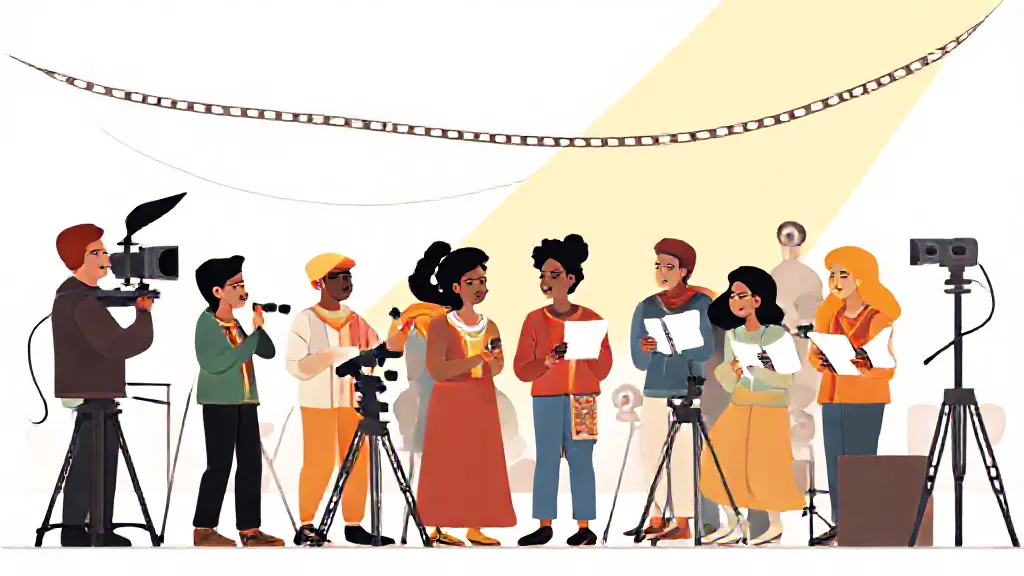Cultural representation in movies is a crucial aspect of storytelling that shapes societal perceptions and attitudes. It refers to the portrayal of various cultural groups in film, encompassing their values, beliefs, and experiences. The importance of this representation cannot be overstated, as it influences how audiences understand and relate to different cultures, ultimately contributing to a more inclusive society.
The Power of Visual Narratives
Movies are a powerful medium for storytelling, capable of evoking emotions and shaping public opinion. When films accurately represent diverse cultures, they provide audiences with a window into the lives of others, fostering empathy and understanding. For instance, films like "Black Panther" and "Crazy Rich Asians" not only showcase underrepresented cultures but also celebrate their richness and complexity.
These films challenge stereotypes and offer nuanced portrayals that resonate with audiences, demonstrating the potential of cinema to bridge cultural divides.
Historical Context of Representation
Historically, the film industry has often marginalized or misrepresented various cultural groups. From the early days of Hollywood, where white actors played characters of different ethnicities, to the present day, where diversity is still an ongoing struggle, the journey towards equitable representation has been fraught with challenges.
This lack of representation can perpetuate harmful stereotypes, leading to misconceptions and biases that affect how people perceive entire communities. Understanding this history is vital for recognizing the importance of inclusive storytelling in contemporary cinema.
The Role of Filmmakers and Creatives
Filmmakers and creatives play a pivotal role in shaping cultural narratives.
Their choices in casting, storytelling, and production can either reinforce stereotypes or challenge them. By prioritizing authenticity and collaboration with cultural consultants, filmmakers can create stories that reflect the true essence of the cultures they depict. For example, the success of films like "The Farewell," which was directed by Lulu Wang and features a predominantly Asian cast, highlights the significance of having creators who understand and represent their own cultures.
Audience Reception and Impact
The reception of culturally representative films often varies among audiences. While many viewers celebrate the authenticity and diversity presented on screen, others may resist or critique these narratives based on personal biases or preconceived notions. However, research indicates that exposure to diverse representations can lead to greater acceptance and understanding of different cultures.
This shift in audience perception is essential for promoting social change and dismantling stereotypes that have long persisted in society.
Economic Implications of Diverse Representation
Beyond social impact, cultural representation in films has significant economic implications. Movies that feature diverse casts and stories can tap into global markets, attracting a wider audience base.
The financial success of films like "Black Panther," which grossed over $1.3 billion worldwide, underscores the commercial viability of inclusive storytelling. As the film industry continues to evolve, embracing diversity not only enriches narratives but also enhances profitability, making it a win-win situation for filmmakers and audiences alike.
The Future of Representation in Cinema
Looking ahead, the future of cultural representation in movies appears promising, albeit with ongoing challenges. The rise of streaming platforms has opened new avenues for diverse storytelling, allowing for a broader range of voices and experiences to be showcased. However, it is crucial for industry stakeholders to remain vigilant and committed to fostering an environment where all cultures are accurately represented and celebrated.
This commitment will require ongoing dialogue, advocacy, and support for underrepresented creators in the film industry.
Conclusion: A Call for Authenticity in Storytelling
In conclusion, cultural representation in movies is vital for fostering understanding, empathy, and inclusivity in society. As audiences become more aware of the importance of diverse narratives, filmmakers must rise to the occasion by prioritizing authenticity and collaboration in their storytelling.
By doing so, they can create films that not only entertain but also educate and inspire, paving the way for a more inclusive and representative cinematic landscape.
